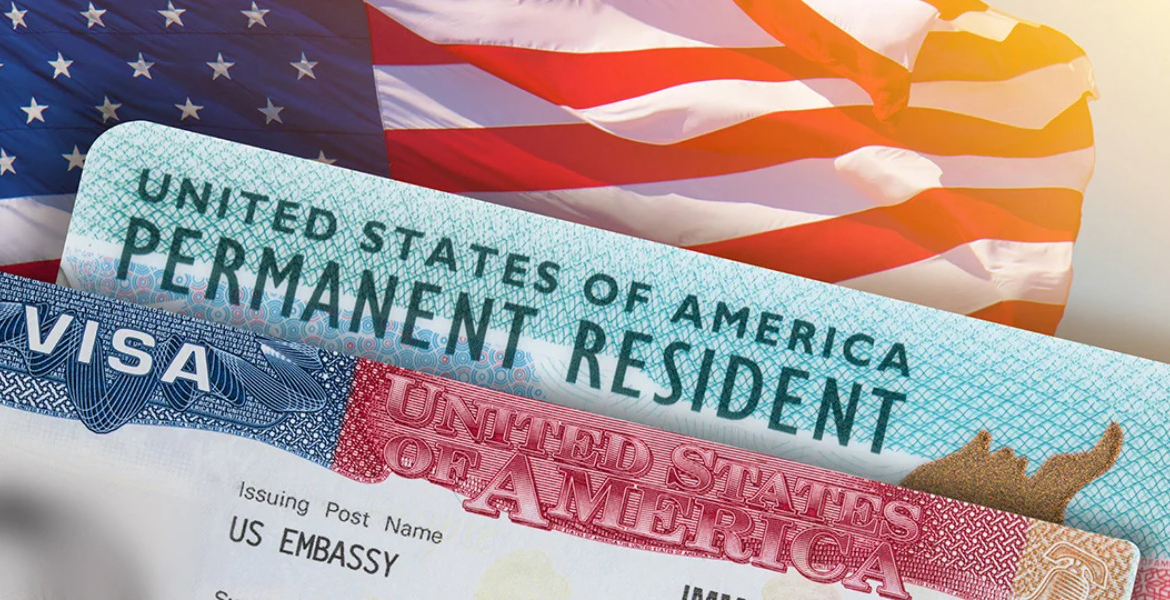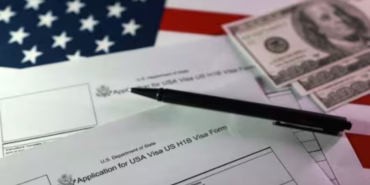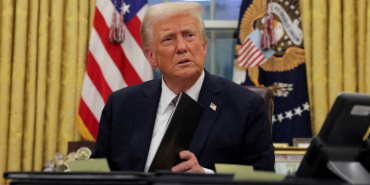White House Proposes New Policy Allowing Indefinite Green Card Revocation Powers

A legal challenge centred on the US Attorney General's authority to revoke lawful permanent residency status, even years after its initial approval, played out before the Third Circuit Court of Appeals on Tuesday, igniting concerns about due process protections for green card holders.
The case, involving Palestinian-born imam Mohammad Qatanani, could set a precedent with sweeping implications for millions of permanent residents across the nation. The Justice Department's stance, argued during the hearing, asserts broad power to reconsider and potentially revoke green cards regardless of the time elapsed since the original grant. Critics warn that if the court upholds this position, it could destabilise the legal foundation of permanent residency and undermine fundamental due process rights.
The case revolves around Mohammad Qatanani, a long-time New Jersey resident who leads one of the state's largest mosques. Qatanani secured a green card in 1999 after years of pursuing permanent residency. Federal officials later challenged this decision, citing his past detention by Israeli authorities and alleged connections to Hamas. He has consistently denied these claims. Immigration judges had twice ruled in Qatanani's favour, yet the Board of Immigration Appeals intervened and revoked his green card. Qatanani subsequently appealed this decision, leading to Tuesday's hearing.
During the proceedings, Justice Department attorney Lindsay Murphy argued that the initial decision to grant Qatanani residency was flawed due to procedural deficiencies, including missing visa certification and biometric updates. Murphy maintained that the Board of Immigration Appeals retains the authority to reopen cases at any time, irrespective of how many years have passed. Judge Arianna Freeman, appointed by President Biden, questioned the reach of the Justice Department's interpretation.
"Do you mean even 10, 20 years later?" she asked.
Murphy affirmed that no statutory time restriction exists but added, "But that certification requirement comes also with the requirement that there be exceptional circumstances."
The government's argument rests on a reinterpretation of existing immigration law, raising concerns among legal experts and immigrant advocacy groups about the potential for significant uncertainty for millions of permanent residents. The prospect of retroactively revoking green cards based on procedural technicalities, rather than fraudulent or criminal behaviour, has amplified these concerns.
Legal Framework and Due Process Concerns
Current immigration law establishes a clear process for rescinding permanent residency. Amelia Wilson, Assistant Professor at Pace University's Elisabeth Haub School of Law, pointed out that existing statutes do not grant the Department of Homeland Security unilateral authority to revoke green cards. The agency must first issue a formal "Notice of Intent to Rescind," followed by a hearing where the government bears the burden of proving, through "clear, unequivocal, and convincing" evidence, that the individual should be stripped of their residency. Only an immigration judge can ultimately determine whether revocation is justified.
The Justice Department’s argument before the Third Circuit aims to bypass this established process by focusing on administrative oversights that could allow the Board of Immigration Appeals to reopen cases long after they were considered settled. Legal experts argue that such an approach undermines the fundamental protections of lawful permanent residency, stripping individuals of long-term security and eroding trust in the immigration system. Bradford Bernstein, managing partner at Spar Bernstein, voiced concern over the ramifications of accepting the government's position.
"The government is arguing that it can revoke a green card years or even decades after it was granted, based solely on a claim that an immigration judge did not complete all the administrative steps required to finalise the grant of permanent residency," he explained. "The immigrant involved was granted a green card by a judge, and the government failed to appeal within the standard 30-day window. Under well-established legal principles, that decision should be considered final."
Bernstein warned that adopting the Justice Department's stance would set a dangerous precedent, potentially leading to green cards being rescinded retroactively due to clerical or procedural errors made by government agencies, rather than misconduct or fraud on the part of immigrants.
Political and Social Implications
The legal battle unfolds amid heightened debate over immigration policy in the United States. Former President Donald Trump consistently advocated for stricter enforcement, pledging to deport millions of undocumented migrants. While his administration primarily focused on individuals with criminal records, recent cases have highlighted instances in which green card holders, who have committed no crimes, have faced detention.
Wilson criticised the Justice Department's argument, stating, "The Justice Department’s position before the Third Circuit is yet another attempt to terrorise immigrant communities. The administration is telling noncitizens that they are never safe from sudden detention and deportation, even after they have followed the law, and even after they have been granted permanent residence by our own government."
Potential Outcomes and Future Implications
If the Third Circuit rules in favour of the government, the decision would directly impact green card holders within its jurisdiction, encompassing Pennsylvania, New Jersey, and Delaware. This outcome could prompt residents to explore legal strategies or even consider relocating to other states. Should the case escalate to the Supreme Court and the ruling be upheld, it could establish a national precedent, fundamentally altering how permanent residency decisions are reviewed across the United States.
For millions of green card holders, the prospect of losing residency status due to administrative technicalities introduces a troubling uncertainty into an already complex immigration landscape. Experts caution that if the courts endorse such an approach, it may embolden further governmental efforts to challenge settled residency cases, eroding confidence in the protections afforded to lawful permanent residents.








Add new comment